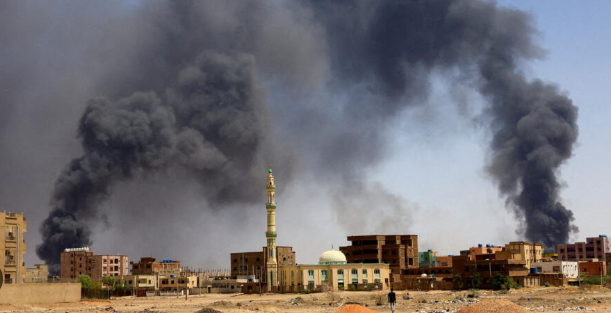A Sudanese political affairs researcher has said the Sudanese state failed to represent all its citizens at the economic, political, and social levels, leading to the eruption of the current conflict which has now morphed into a full-scale war.
For nearly six months, Sudan has been suffering from devastating fighting between the two largest military forces, the Sudan Armed Forces (SAF) and the paramilitary Rapid Support Forces (RSF), causing massive destruction of infrastructure, displacement, and disruption of the government apparatus in the capital after the RSF took control of most of Khartoum.
The violent fighting has also claimed the lives of more than 4,000 civilians and displaced about 7 million people internally and externally, most of whom live in extremely complex and dire humanitarian conditions due to the lack of humanitarian aid.
Abdullah Adam Khater told Radio Tamazuj Tuesday that the social and political forces were standing behind their interests and others participated in igniting the 15 April war and spreading hate speech and hostility among the Sudanese.
“After six months of the damned war, everyone has become more aware that the war will not achieve success for Sudan,” he stated. “All parties must work to stop the war and continue the glorious December revolution represented by democracy, the rule of law, and development.”
Adam explained that those who incited the war were short-sighted and wanted to turn back the clock, accusing the former regime of seeking to return to power again.
He specified that the international community realizes the importance of the geopolitical situation in Sudan, so there were no deep security interventions to stop the fighting, calling on the Sudanese to pay attention to themselves and to be the owners of the final solution in their internal affairs.
“The solution to the Sudanese crisis is a collective solution, represented by adherence to the constitutional principles approved by the glorious December Revolution because dialogue for the sake of the constitution preserves the sustainability of economic, social, political, and cultural life in Sudan,” Adam explained.
He added that true democratic transition requires achieving truth, reconciliation, and justice among all Sudanese.




